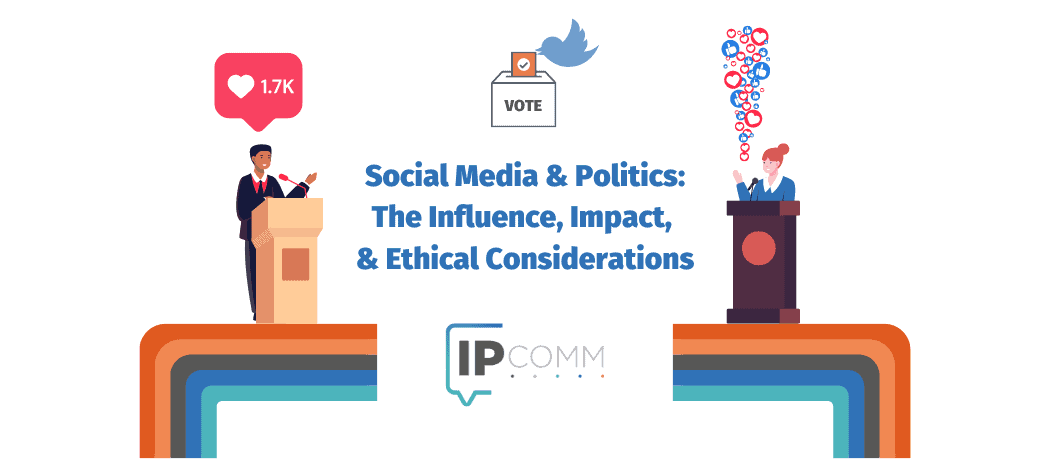Social Media and Politics: The Influence, Impact, and Ethical Considerations
BLOG

Article
Social Media and Politics: The Influence, Impact, and Ethical Considerations
Social media and politics seem like a match made in heaven. The level of influence, outreach, and popularity that social outlets provide make them a powerful tool in the political landscape.
A Pew Research Center survey conducted in 2020 stated that about 55% of U.S. adults said they had engaged in political activity on social media, such as posting, sharing, or commenting on political content. If half the country (probably more) is politically active through their channels, just how big are politics in social media nowadays?
The Rise of Political Engagement on Social Media
One cannot underestimate the significant role social media has played in reshaping political discourse. Platforms like Facebook, Twitter, and Instagram have become virtual arenas where political opinions are voiced, information is disseminated, and social movements are galvanized. A study by the University of Oxford found that around 43% of internet users in 26 countries had engaged in political discussions on social media.
Furthermore, social media has facilitated real-time interactions between politicians and their constituents, enabling public figures to connect with their followers on a more personal level. This direct engagement has the potential to foster transparency, accountability, and responsiveness in political systems.
The Power of Viral Content
Social media’s viral nature has the ability to propel political content into the limelight, making it possible for information to spread rapidly across global networks.This phenomenon has been harnessed by political campaigns, advocacy groups, and activists to raise awareness, mobilize supporters, and rally public sentiment.
However, the virality of political content also raises concerns about the accuracy and authenticity of the information being shared, or as we know them, ‘Fake News’. False or misleading narratives can spread like wildfire, leading to the dissemination of misinformation and the polarization of public opinion. A study by the Massachusetts Institute of Technology (MIT) found that false news stories on social media spread six times faster than true stories. Research conducted by the Pew Research Center revealed that 64% of Americans say that fake news has caused “a great deal” or “a fair amount” of confusion about basic facts of current events.
Polarization and Echo Chambers
Algorithms employed by social media platforms are designed to prioritize content based on users’ preferences and interests, creating personalized feeds that reinforce existing beliefs and biases. This selective exposure can lead to the formation of echo chambers, where individuals are exposed only to information that aligns with their views while discrediting outlets which oppose them, further deepening societal divisions.
An example of this can be seen in the 2020 election, when presidential candidate Donald Trump utilized his outlet to subvert and undermine traditional media outlets, particularly CNN, after the election was called for Joe Biden. Many believe these continuous engagements fueled the infamous 2021 January 6 riots.
The anonymity and distance offered by social media has also emboldened individuals to express extreme opinions, leading to hostile online environments and the spread of hate speech. Political discussions on social media often devolve into heated arguments, with little room for nuance or respectful disagreement.
Conclusion
While social media has provided a platform for marginalized voices, facilitated political engagement, and amplified social movements, it has also fueled polarization, disseminated misinformation, and created echo chambers. This means that as we use social media, we have to become increasingly more aware of the influence it holds in regards to politics. Respect, accuracy, and civil political discussions are more important than ever before.